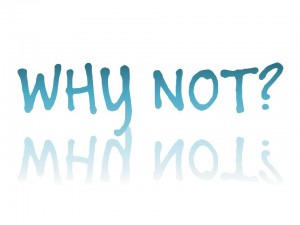Creativity workshops
 A whole lot of post it notes or a journey through the three thirds of your mind
A whole lot of post it notes or a journey through the three thirds of your mind
I’m not a scholar on creativity. However, whether I’m in the lab or managing collaborations or learning a new music score, I use creativity every day to solve problems. I’ve always done so and we all do it without thinking about it. There are loads of books on creativity and ways to harness our creative potentials so I’m not going to discuss creativity. Instead, I’m going back to a recent creativity facilitation workshop training I attended. It was given by knowinnovation.com. It was aimed at managers who support innovation so we can facilitate creativity workshops. This time, I was not a sceptic; I knew I would get tricks to facilitate the flow of my own creativity and that of others. I agree, as my colleague Simon pointed out, it can generate a lot of useless post it notes. However, if it is done well, it is a journey through the three thirds of your mind; a way to unlock truly innovative solutions.
Leave your judgment at the door: diverge 
In the first phase of creative facilitation, we have to defer our judgment. Be divergent: it’s time to let your thoughts go where your dreams are made. As an artist, I have no problem pushing my thoughts to the limits of the absurd (judgment here) but, as a scientist, I have to find solutions that have a solid base in reality. However, by leaving judgement out of the room, thoughts can flow freely without the constraint of criticism. The more ideas you come up with in this part of the process, the better. Don’t restrain yourself, write everything. The ideas will go beyond expectations but let them roam; you never know what kernel of genius might come out of the weirdest ones.
 Be constructively critical: converge
Be constructively critical: converge
The first phase is useless without the second one. Like the ying and the yang, divergence will only be useful if the ideas converge again into clusters. We can criticise every idea, however, we need to make it constructive, especially when faced with something outside our expertise. Outside our expertise… That brings me to another process to help creative flow: inter-disciplinarily.
Mix things up: inter-disciplinarily
No longer can we solve problems in silos of expertise. Experts are great at understanding every little known facts but to generate new ideas, we need to look outside the box, seek different perspectives. A scientist questioning the engineering or a philosopher asking to explain a concept differently may challenge the most patient amongst us but it is part of the process. I agree, most of the ideas will be wild or unpractical (no judgment here) but going through the creative facilitation process allows the identification of potential kernels in the most ludicrous ideas. Besides, we’re good at inter-disciplinary at the University of Southampton: we must be good at listening without judging.
 Listen, don’t judge
Listen, don’t judge
That’s the trick. Patience whilst listening will bring fruit. I mentioned leaving your judgement outside; to truly reap reward from a facilitation session you also have to leave your ego outside the door. Everyone has expertise in something. It may not be academic but there is wisdom in life experiences that should not be discarded. A lay person will have a perspective that may not be the first idea of the academic but it will inevitably question the core of the idea. The trick is to listen, not to judge and, going back to convergence, instead of giving the negative comment (e.g. this is rubbish), turn it into a question (e.g. how can we make this ‘less rubbish’).
WHY? WHY? WHY?
Education takes us from free creative thinkers that question everything to the Cartesian and logical academics who will decompose and criticise every idea. Our insatiable curiosity to understand the world around us has taken us into academic research; our training has taken us to a whole new level of scepticism. In our busy lives, we don’t have time to waste pursuing every idea coming into our heads but we are good at say: ‘why do that? It won’t work’. Instead of discarding the idea, we should be constructive and ask ‘why not?’
 The three thirds of your mind
The three thirds of your mind
First third: diverge then converge to group the ideas. These ideas will be the obvious ones. You’re just warming up.
Second third: diverge on one group of ideas then converge to new clusters. Ah! There is some more potential in the ideas that come out of this exercise. You’re getting there; the spark of genius is just around the corner but not quite there yet.
Third third: one more time to diverge on a selected cluster then converge. Hum… the ideas are weird and wacky maybe we have gone too far but, then again, question the ideas constructively. And if you discard the idea because you say ‘we can’t do it’… ask ‘why not?’
To wrap up
What I got out of the creative facilitation workshop is that, until you have gone through the three thirds, you have not completed the process and will be left with no truly new ideas. Then, yes, I agree, you have wasted your time. That is why it’s worth spending enough time in the workshop to complete the process. A good facilitator will allow this to happen and you won’t even realise it.
Next time you’re invited to join a creative facilitation workshop, a sandpit or any kind of brainstorming session, ask yourself why not! It might still be a whole lot of post it notes but then you never know which kernel of genius will come out of any of these sticky notes. Step outside the box and see the potential.
All images (except ‘why not?’) can be found at pixabay.com

Leave a Reply